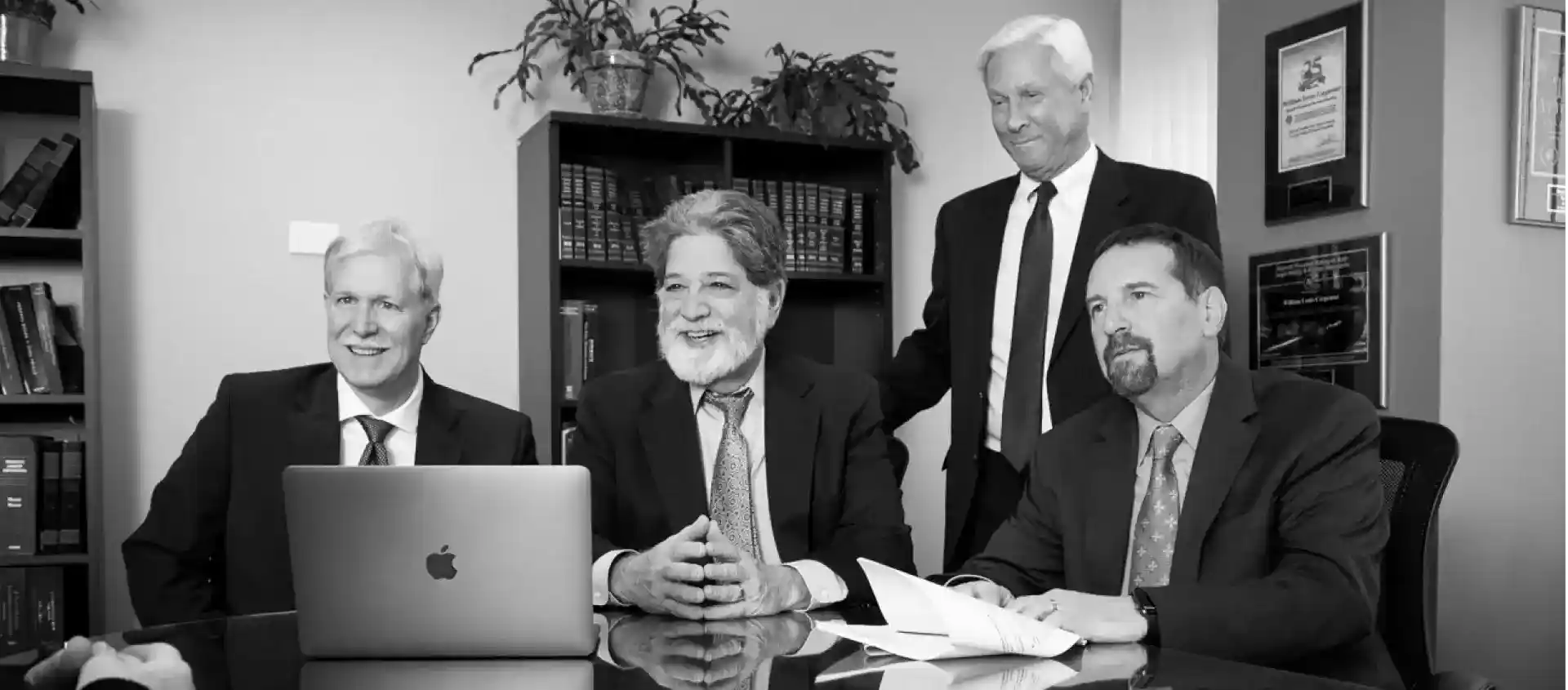
Double indemnity clauses stipulate that an insurance carrier agrees to pay at least double the policy limit if the policyholder dies an accidental death. Life insurance and accident policies (also known as AD&D for “accidental death and dismemberment”) often include double indemnity clauses. While these clauses can provide financial relief and other benefits in a time of grief, understanding how double indemnity works in practice can help protect you in the event of a loss.
Speaking with a member of the Gerash Steiner Blanton, P.C. team can help you work through the range of risks and benefits of double indemnity insurance. As experienced personal injury and wrongful death lawyers, we understand double indemnity claims. If you are facing the difficult task of filing such a claim, contact us as soon as possible.
How Does Double Indemnity Insurance Work?
Double Indemnity Clause
To clarify, a double indemnity clause is language within an insurance policy specifying that double indemnity applies to the contract. This means that if an insurance policy includes a double indemnity clause, the insurer must pay at least double the limits of the policy upon the accidental death of the insured party. Some double indemnity policies require insurers to pay three or more times the policy limit upon the insured’s accidental death.
Accidental Death
A unique feature of double indemnity is that the insured’s death must be accidental for the insurance company to pay the claim. In the United States, accidental death is the fourth leading cause of death. However, only 5% of all deaths each year are accidental. Hundreds of thousands more people die of heart disease and cancer. Because of this relatively low incidence of accidental death, insurance companies rarely have to pay out double indemnity claims.
Double indemnity policies can be an integral part of a wrongful death lawsuit. The evidence used to prove accidental death for the claim may also be used in the lawsuit. If you are facing the challenge of navigating both a wrongful death lawsuit and a double indemnity insurance policy, speak with experienced legal counsel right away. Our team at Gerash Steiner Blanton, P.C. can help.
What Does Double Indemnity Cover?
Insurance companies want to avoid paying out hefty policy limits. In the case of double indemnity, this typically means claiming a death was not accidental. For example, the insurance company may even go so far as to say they will not pay because the insured died by suicide when they died in a car accident.
Some typical examples of accidental deaths that are specifically covered by double indemnity insurance include:
- Slip and fall accidents,
- Murder,
- Accidental drowning,
- Car accidents,
- Boat accidents, and
- Choking.
These are just a few examples of the types of accidents that might be covered by a double indemnity clause. You will need to check your policy to confirm what terms apply.
While your insurance company may try to argue over the accidental nature of a death, most policies will have some clear exclusions. Double indemnity normally does not cover any of the following:
- Suicide,
- Heart disease,
- Cancer,
- Long-term illness or disability,
- Negligence of the insured, and
- Murder caused or conspired to by a beneficiary of the policy.
If the cause of your loved one’s death is unknown or undetermined, the insurer is not yet required to pay the claim. However, once the majority of evidence shows the insured died of accidental causes, then the insurance company will need to pay.
What Should You Do If Your Insurance Company Denies Your Claim?
Outright Denials Of a Double Indemnity Claim
Even when it is clear that a death was accidental, as in the case of a well-documented motor vehicle accident, insurance companies often try to avoid paying claims. However, you can dispute the denial of a double indemnity claim. Your policy may explain the dispute process, and an experienced lawyer can help.
When the insurance company denies a claim, the burden is on you to challenge the denial. Sometimes, you can challenge the denial of double indemnity with further evidence of accidental death. Sometimes, a resolution can be negotiated out-of-court in a settlement. Speak with a knowledgeable wrongful death attorney to understand your rights.
Bad Faith Denials of Double Indemnity Claims
In cases where a death certificate lists an undetermined or ambiguous cause of death, an insurance company may deny a double indemnity insurance claim before waiting for all the evidence. If a reasonable insurance company would have honored the claim, you may have a claim against the insurance company for bad faith.
Indications that your insurance company is acting in bad faith include:
- Claim denials without explanation or with no reasonable explanation,
- Unusual or unnecessary delays in processing claims and communications, and
- Unreasonably low offer to settle your claim.
Even if your insurance company makes you an offer to settle, you are under no obligation to accept it. Speak with a member of the Gerash Steiner Blanton, P.C. team today to discuss your options.
Why You Should Hire a Lawyer to Handle Double Indemnity Claims
When you are seeking double indemnity after a loved one’s death, having an attorney to guide you through the claims process can be an invaluable resource. An experienced wrongful death attorney should be prepared to fight all the way to court for you against an insurance company that denies rightful payment of accidental death claims. With knowledgeable legal representation, you can improve your chances of receiving the double indemnity compensation you are owed after a devastating accidental death.
How Gerash Steiner Blanton, P.C. Can Help
As client-focused and compassionate wrongful death lawyers, we take a comprehensive approach to every case we handle. We listen to you and answer your questions before developing a compelling recovery strategy.
To learn more and schedule a free consultation, please contact us through our online portal. One of our attorneys will be in touch soon. We will not bill you for our legal representation unless we can recover compensation on your behalf.

